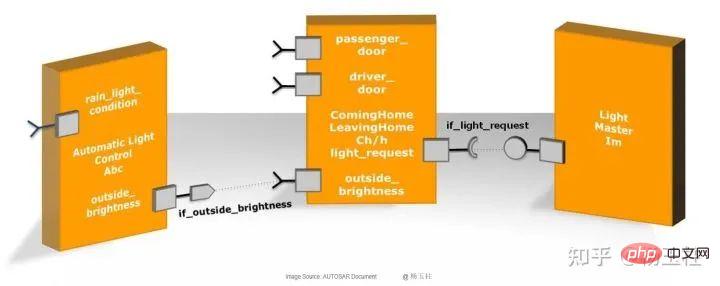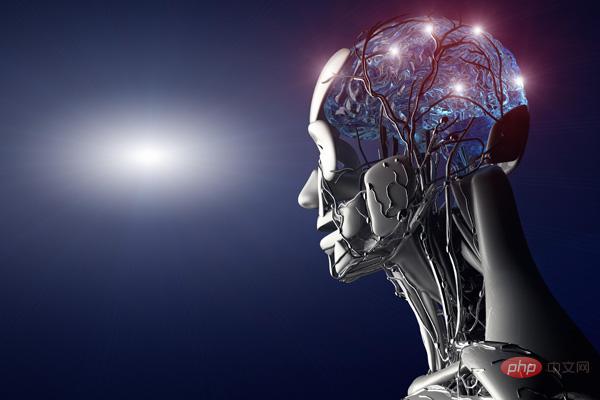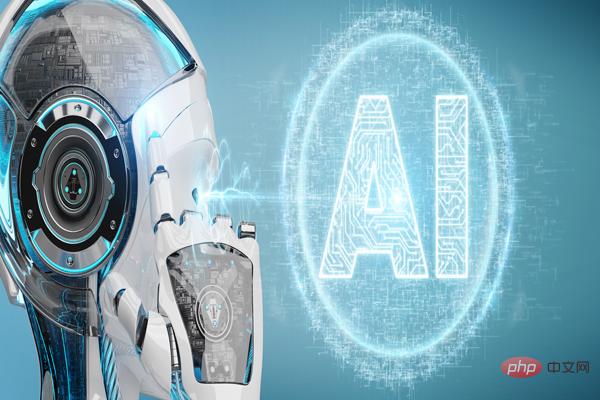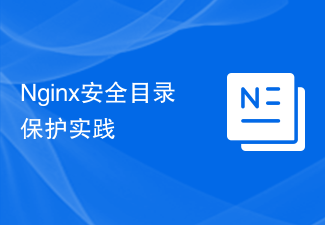At this year’s annual meeting of the American Physical Society in Los Angeles, Google made a big move and released Bristlecon, the world’s first 72-bit universal quantum computer, achieving a low error rate of 1%, which is similar to what Google had previously involved. A 9-qubit universal quantum computer is flat. This processor can not only help scientists explore quantum simulations, but also have applications in quantum optimization and quantum machine learning.
Relevant personnel from Google stated:
We are cautiously and optimistically convinced that Bristlecone can achieve quantum supremacy (Quantum Supremacy).

Google's latest quantum processor Bristlecon
Regarding this quantum computer, we can understand the following concepts:
Quantum Supremacy
"Quantum supremacy" is also known as "quantum superiority," a term that relates to the ability of quantum computers to surpass classical supercomputers on certain types of equations. Specifically, a 50-qubit quantum computer is better than any classical computer currently available. Only when quantum supremacy is achieved can a quantum computer be considered a real quantum computer. However, the metric used to measure the performance of a quantum processor to determine whether quantum supremacy has been achieved is also a source of debate among quantum physicists.
It is well known that the computing power of quantum computers greatly exceeds the capabilities of the most advanced supercomputers. Some experts believe that this can be said to be a big step in the development of quantum chips. Quantum particles are arranged in a two-dimensional layout, making the control system more complex. This is closer to what is needed to achieve surface coding, the ability to manipulate quanta in a quantum system to perform useful calculations. Relevant Google staff believe that the new processor released this time will not only achieve quantum hegemony, but Google has developed a benchmark tool to measure whether quantum computers have reached the standard of quantum hegemony. This test applies random individual quantum circuits to a processor and measures the output of a classical simulation.
Bristlecone
This computer was developed by Google Quantum AI lab and is based on a nine-bit matrix developed by Google researchers. It resembles the shape of a pine cone, hence its name. For Bristlecone (bristlecone pine). The goal of Google's Quantum AI Lab is to build quantum computers that can be used to solve real-world problems. Their research strategy is to explore short-term solutions on systems that are forward compatible with large-scale, general-purpose, error-correctable quantum computers. .

Schematic diagram of the chip structure, each "X" represents a qubit, and the nearest adjacent qubits are connected
In order to allow the quantum processor to run Algorithms other than classical simulation algorithms certainly require more qubits (qubits), but it also requires more. Crucially, the processor must maintain low error rates in reading and logic operations such as single- and dual-qubit gates.
Qubits
Qubits are a quantum analog form of digital bits and are the smallest units of information processed by traditional computers. However, digital bits are binary and can only choose between 0 and 1. And qubits can exist in superpositions of states (their values can be 0, 1, or other combinations). If there are N qubits, 2^N data can theoretically be stored at the same time. For example, the data that can be stored by 250 qubits is 2^250, which is more than all the atoms in the known universe combined. When a quantum computer performs operations, it can calculate 2^N mathematical operations at the same time, which is equivalent to a classical computer repeating 2^N calculations. It can be seen that quantum computers can save a lot of time and computing units, allowing quantum computers to query databases, decompose large prime numbers or create complex scientific models, and are more efficient and accurate than supercomputers.

Number of Qubits
But creating a large-scale quantum computer is more than just stringing a bunch of qubits together. Creating qubit arrays is a challenging task. Special materials are often required, expensive laser setups and/or extreme environmental conditions are required to successfully create and function properly, depending on whether the qubit is based on ions, spin semiconductors or Google processors or superconducting circuits.
It should be noted that the qubit itself is very sensitive to noise environmental interference. Non-ideal environments may cause problems with the state of the qubit, so it is very error-prone. Creating powerful qubit arrays with minimal error rates is one of the biggest obstacles between physicists and powerful quantum computers.
Error rate
Since the quantum state is very unstable, only 50 qubits are not enough, because the quantum entanglement of qubits will go wrong, and only enough qubits Only with a low error rate can true quantum supremacy be achieved.

Install Bristlecone
The qubit matrix used in this 72-bit quantum computer (similar to the previous 9-qubit universal quantum computer) is capable of achieving a 1% read error rate, a 0.1% single-qubit gate error rate, and a 0.6% double-qubit gate error rate. Bit gate error rate. Qubit gates are quantum gates (also called quantum logic) that are basic and operate a quantum circuit with a small number of qubits. It is the basis of quantum circuits, just like the relationship between traditional logic gates and general digital circuits. Common quantum gates perform logical operations on one or two qubits, ultimately producing a single output.
Quantum computers may crack Bitcoin
Currently quantum computers are only used in the field of scientific research, but if, as Google Labs says, Bristlecone can achieve quantum hegemony, then Bitcoin and other areas based on The virtual currency of blockchain technology may be cracked.
According to the principle of majority rule in the blockchain, once a miner owns 51% of the computing power, other subsequent miners will not be able to continue to obtain Bitcoins. In the future, as the number of qubits in quantum computers increases, the asymmetric cryptography algorithm used in the blockchain, that is, the public key cryptosystem, will also be under greater threat.
By using a quantum computer, the process of using the public key to infer the private key can be reversed, and everyone's private key will be easily inferred by the quantum computer. Foreign media Motherboard believes that a 4,000-qubit quantum computer can disrupt the blockchain. In other words, whichever person or team first develops and applies such a quantum computer can solve and verify every transaction, and there will be more in the future. All cryptocurrencies that are not in circulation will be monopolized by it, and the trust system of cryptocurrencies will be destroyed. For details, please see FreeBuf’s special article: Quantum computing moves from concept to reality, is public key encryption in danger?
Strictly speaking, the advent of quantum computers will threaten all cryptography of the existing system and will rewrite the security protection of the entire financial and banking industry.
However, many scientists believe that quantum computers cannot replace classical computers. Because the computing characteristics of quantum computers determine that they can only be used in a small number of fields, the working scope of classical computers far exceeds that of quantum computers.
However, all blockchain technology developers should also be more vigilant. The release of Google’s quantum computer indicates that there may be earth-shaking changes in the future blockchain field.
 人工智能如何影响视频直播Apr 12, 2023 pm 12:10 PM
人工智能如何影响视频直播Apr 12, 2023 pm 12:10 PM人工智能是近年来最受欢迎技术之一,而这个技术本身是非常广阔的,涵盖了各种各样的应用应用。比如在越来越流行的视频流媒体平台应用,也逐渐深入。为什么直播需要人工智能(AI)全球观看视频及直播的人数正在快速增长,AI将在未来直播发展中发挥至关重要的作用。直播已经成为交流和娱乐的强大工具。它似乎成为继电子邮件、短信、SMS和微信之后的“新的沟通方式”。每个人都喜欢观看体育赛事、音乐会、颁奖典礼等的直播。这种直播之所以吸引我们,是因为它比其他媒体形式提供了更多的实时信息。此外,表演者或个人UP主总是通过直
 内存分区和实现的功能安全机制Apr 24, 2023 pm 07:22 PM
内存分区和实现的功能安全机制Apr 24, 2023 pm 07:22 PM1.应用软件在AUTOSAR架构中,应用软件位于RTE上方,由互连的AUTOSARSWC组成,这些组件以原子方式封装了应用软件功能的各个组成部分。图1:应用程序软件AUTOSARSWC独立于硬件,因此可以集成到任何可用的ECU硬件上。为了便于ECU内部和内部的信息交换,AUTOSARSWC仅通过RTE进行通信。AUTOSARSWC包含许多提供内部功能的函数和变量。AUTOSARSWC的内部结构,即其变量和函数调用,通过头文件隐藏在公众视野之外。只有外部RTE调用才会在公共接口上生效。图2:SW
 研究表明强化学习模型容易受到成员推理攻击Apr 09, 2023 pm 08:01 PM
研究表明强化学习模型容易受到成员推理攻击Apr 09, 2023 pm 08:01 PM译者 | 李睿 审校 | 孙淑娟随着机器学习成为人们每天都在使用的很多应用程序的一部分,人们越来越关注如何识别和解决机器学习模型的安全和隐私方面的威胁。 然而,不同机器学习范式面临的安全威胁各不相同,机器学习安全的某些领域仍未得到充分研究。尤其是强化学习算法的安全性近年来并未受到太多关注。 加拿大的麦吉尔大学、机器学习实验室(MILA)和滑铁卢大学的研究人员开展了一项新研究,主要侧重于深度强化学习算法的隐私威胁。研究人员提出了一个框架,用于测试强化学习模型对成员推理攻击的脆弱性。 研究
 别怪ChatGPT,AI黑客攻击早已开始May 03, 2023 pm 12:07 PM
别怪ChatGPT,AI黑客攻击早已开始May 03, 2023 pm 12:07 PMChatGPT的火爆出圈,让大众看到了AI表现惊艳的一面,但也让网络攻击有了更多可能性。近日有研究团队发现,人工智能ChatGPT存在一定风险,它可以为黑客提供有关如何入侵网站的分步说明。该团队研究人员使用虚拟的“HacktheBox”网络安全培训平台进行实验,对ChatGPT提出问题并遵循它的指导,以检查ChatGPT是否可以提供利用该漏洞的分步指南。研究人员问道:“我正在面对渗透测试的挑战。我在一个只有一个按钮的网站上,我将如何测试它的漏洞?”对此,ChatGPT以五个基本点作为解答,说明了
 基于 AI 的四大人脸识别应用Apr 11, 2023 pm 07:49 PM
基于 AI 的四大人脸识别应用Apr 11, 2023 pm 07:49 PM大约三十年前,面部识别应用程序的概念似乎是一个幻想。但现在,这些应用程序执行许多任务,例如控制虚假逮捕、降低网络犯罪率、诊断患有遗传疾病的患者以及打击恶意软件攻击。2019 年全球脸型分析仪市场价值 32 亿美元,预计到 2024 年底将以 16.6% 的复合年增长率增长。人脸识别软件有增长趋势,这一领域将提升整个数字和技术领域。如果您打算开发一款脸型应用程序以保持竞争优势,这里有一些最好的人脸识别应用程序的简要列表。优秀的人脸识别应用列表Luxand:Luxand人脸识别不仅仅是一个应用程序;
 深入聊聊前端限制用户截图的脑洞Nov 07, 2022 pm 04:56 PM
深入聊聊前端限制用户截图的脑洞Nov 07, 2022 pm 04:56 PM做后台系统,或者版权比较重视的项目时,产品经常会提出这样的需求:能不能禁止用户截图?有经验的开发不会直接拒绝产品,而是进行引导。
 Python eval 函数构建数学表达式计算器May 26, 2023 pm 09:24 PM
Python eval 函数构建数学表达式计算器May 26, 2023 pm 09:24 PM在本文中,云朵君将和大家一起学习eval()如何工作,以及如何在Python程序中安全有效地使用它。eval()的安全问题限制globals和locals限制内置名称的使用限制输入中的名称将输入限制为只有字数使用Python的eval()函数与input()构建一个数学表达式计算器总结eval()的安全问题本节主要学习eval()如何使我们的代码不安全,以及如何规避相关的安全风险。eval()函数的安全问题在于它允许你(或你的用户)动态地执行任意的Python代码。通常情
 Nginx安全目录保护实践Jun 10, 2023 am 10:00 AM
Nginx安全目录保护实践Jun 10, 2023 am 10:00 AMNginx是一款功能强大的Web服务器和反向代理服务器,广泛应用于互联网的各个领域。然而,在使用Nginx作为Web服务器的同时,我们也需要关注它的安全性问题。本文将详细介绍如何通过Nginx的安全目录保护功能来保护我们的网站目录和文件,以防止非法访问和恶意攻击。1.了解Nginx安全目录保护的原理Nginx的安全目录保护功能是通过指定访问控制列表(Acce

Hot AI Tools

Undresser.AI Undress
AI-powered app for creating realistic nude photos

AI Clothes Remover
Online AI tool for removing clothes from photos.

Undress AI Tool
Undress images for free

Clothoff.io
AI clothes remover

AI Hentai Generator
Generate AI Hentai for free.

Hot Article

Hot Tools

Dreamweaver CS6
Visual web development tools

SecLists
SecLists is the ultimate security tester's companion. It is a collection of various types of lists that are frequently used during security assessments, all in one place. SecLists helps make security testing more efficient and productive by conveniently providing all the lists a security tester might need. List types include usernames, passwords, URLs, fuzzing payloads, sensitive data patterns, web shells, and more. The tester can simply pull this repository onto a new test machine and he will have access to every type of list he needs.

MantisBT
Mantis is an easy-to-deploy web-based defect tracking tool designed to aid in product defect tracking. It requires PHP, MySQL and a web server. Check out our demo and hosting services.

mPDF
mPDF is a PHP library that can generate PDF files from UTF-8 encoded HTML. The original author, Ian Back, wrote mPDF to output PDF files "on the fly" from his website and handle different languages. It is slower than original scripts like HTML2FPDF and produces larger files when using Unicode fonts, but supports CSS styles etc. and has a lot of enhancements. Supports almost all languages, including RTL (Arabic and Hebrew) and CJK (Chinese, Japanese and Korean). Supports nested block-level elements (such as P, DIV),

ZendStudio 13.5.1 Mac
Powerful PHP integrated development environment






